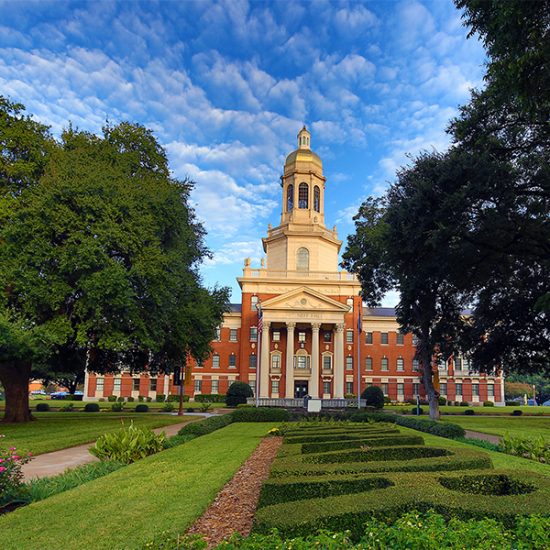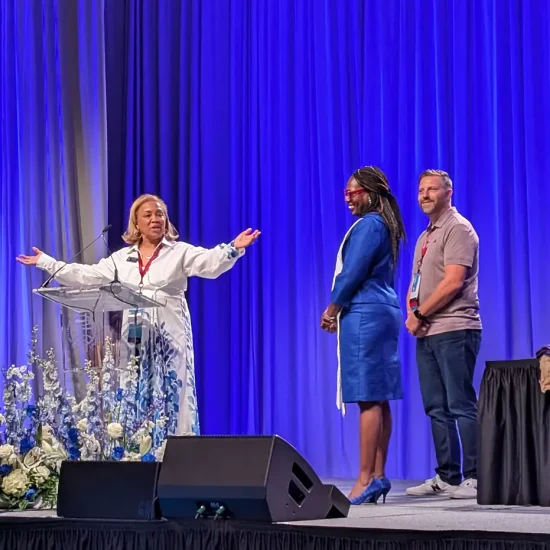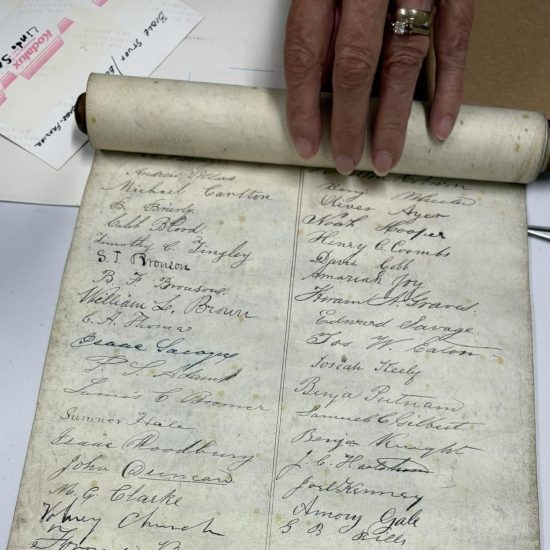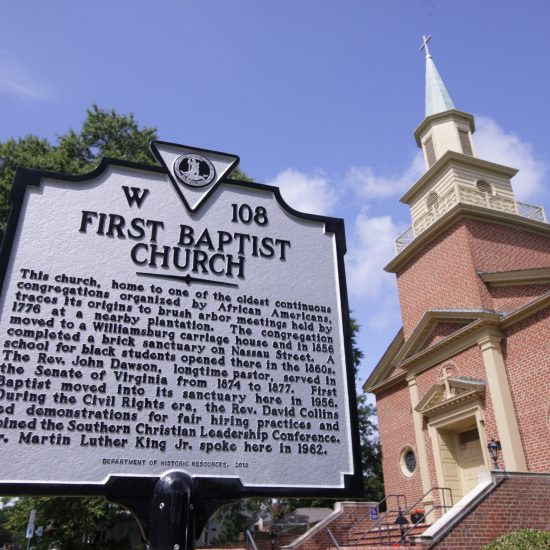Amanda Tyler has served as executive director of the Baptist Joint Committee for Religious Liberty since January. An 80-year-old organization, the BJC represents 15 Baptist bodies, including American Baptist Churches USA, Churchnet, Cooperative Baptist Fellowship, National Baptist Convention of America and National Baptist Convention USA. While in mid-Missouri to talk about religious liberty issues, she sat down for an interview with Word&Way Editor Brian Kaylor.
You’ve been on the job at the BJC for nearly a year. So, what’s been the biggest challenge or surprise?
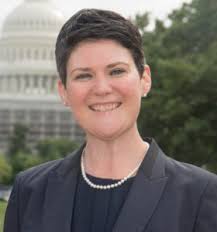 Amanda TylerWell, one of the biggest surprises happened before I even came on board and that was a big surprise for the country — the election of President Trump. That really changed, in some ways, what issues we were going to be emphasizing or responding to this year. In particular, President Trump has made repealing the “Johnson Amendment” a centerpiece of his legislative agenda. That’s a huge surprise. I didn’t expect that that would be the single piece of legislative issue that we would be so focused on this year.
Amanda TylerWell, one of the biggest surprises happened before I even came on board and that was a big surprise for the country — the election of President Trump. That really changed, in some ways, what issues we were going to be emphasizing or responding to this year. In particular, President Trump has made repealing the “Johnson Amendment” a centerpiece of his legislative agenda. That’s a huge surprise. I didn’t expect that that would be the single piece of legislative issue that we would be so focused on this year.
That is a challenge, but it has provided a great opportunity for people to get engaged with us, whether it be on the denominational level or also on the individual level. It’s an incredible outpouring of support and interest in this issue from people in the churches. That has provided a really nice way to connect and for people to be involved in a very important public policy issue this year.
You’ve been involved with the BJC for a long time before beginning in this role this year. Why did you decide to work at the Baptist Joint Committee?
The issue of religious freedom for all is a core issue for me, personally. I’ve had a interest in this topic since I was a child because it is a great combination of my three great passions: the law, public policy and religion.
I’ve long admired the work of the Baptist Joint Committee. I worked with the Baptist Joint Committee when I was in college — as an intern and then as my first job out of college. When I left, I really thought, “That is the best job that I will ever have.” And I was wrong because this is the best job I have ever had!
I never expected the opportunity to come back and lead the organization. When that opportunity arose with the retirement of Brent Walker, I felt a strong calling that this was the next step for me in my vocation — and I have not felt wrong about that decision.
The BJC’s name includes the word “joint” to recognize the work as a joint effort of various Baptist conventions. Is there something about working with 15 Baptist bodies that seems like a unique Baptist model of cooperation today when we often seem so divided in Baptist life?
I see great power in the jointness of our organization, particularly the fact that we have been a collaboration from our beginning. Different groups of Baptists came together in the 1930s to say religious freedom for all is such an important principle and distinctive for us that we want an organization to concentrate only on this.
We’ve continued that legacy over the last 80 years as Baptist life, in some ways, has grown even more fractured. But these diverse groups continue to come together to concentrate on this issue. It also shows that we are larger than just one denominational body or just one way of being Baptist.
We hear a lot about religious liberty these days, but the BJC often offers a unique position on key Supreme Court cases. What is it that drives the BJC’s understanding of how to apply the principle of religious liberty today?
We draw our understanding of religious liberty from our understanding of the Bible, from our Baptist experience as religious minorities at our founding and as religious dissenters in the Colonies and then how that experience helped form our Constitutional protections in the First Amendment. So, looking to that biblical understanding, to our Baptist experience and to the law, that helps us with our principles of religious liberty we can then apply as the toughest issues impacting religious liberty come up today at the Supreme Court.
I feel like our positions are very principled. Sometimes that means that our positions are not very popular. But I feel confident that we are serving that long Baptist interest in upholding religious liberty for all and providing a Baptist witness to our world today.
One thing that I think may surprise some people about the BJC is you advocate not only for non-Baptists but even for non-Christians. Can you explain why that’s such an important part of the understanding of religious liberty for the BJC?
It stems from our understanding that we only have religious freedom if we have religious freedom for everyone. When we see someone else’s religious freedom threatened, our religious freedom has been threatened.
We also know that the State’s support for religion harms religion. It was John Leland who said that “the fondness of magistrates to foster Christianity has done it more harm than persecutions ever did.” So, we know that religion does best when government leaves it alone. That also means that government cannot preference one religious faith over another.
We only have an ability to say “yes” to God if we can also say “no” to God. So, we defend those who say “no.”
Are there ways we talk about religious liberty issues in our society that you find unhelpful? And are there better ways to think about promoting religious liberty for all?
I don’t think it’s unique just to religious liberty issues but we certainly see it arise in regards to these issues, but it’s this sense of black and white, of all or nothing. Because of the way that religion is protected in our First Amendment, issues of religious freedom are inevitably gray. It’s always a balancing of rights — and these are not easy issues.
So, when we hear rhetoric that tries to oversimplify how we look at how we can protect religious freedom or when we try to pit religious liberty against other civil liberties, those are constructs that are really damaging to a robust understanding of religious freedom for all. If we can approach these positions with some sensitivity to both sides of all these issues, if we can look for nuance and not try to see things in stark all-or-nothing terms, I think religious liberty will fare better.
What key religious liberty issues do you see on the horizon as you prepare for 2018?
I see a lot of the issues that came up this year really continuing. I think that the issues that have arisen this year — both in the courts and in Congress — will continue in 2018.
I am particularly alarmed by the hate rhetoric and violence directed toward religious minorities. Not a day goes by that we don’t hear of some story in our communities of vandalism or threats or other adverse actions being taken against religious minorities. We will continue to call on Baptists to cry out for the religious freedom for all.
Note: Learn more about the Baptist Joint Committee for Religious Liberty at bjconline.org.

